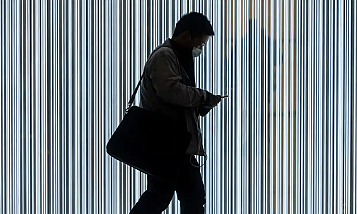Under the proposal, service providers would have to prevent the dissemination of harmful and illegal information, save records and report their discoveries
China is planning to restrict and scrutinise the use of wireless filesharing services between mobile devices, such as airdrop and Bluetooth, after they were used by protesters to evade censorship and spread protest messages.
The Cyberspace Administration of China, the country’s top internet regulator, has released draft regulations on “close-range mesh network services” and launched a month-long public consultation on Tuesday.
Under the proposed rules, service providers would have to prevent the dissemination of harmful and illegal information, save relevant records and report their discovery to regulators.
Service providers would also have to provide data and technical assistance to the relevant authorities, including internet regulators and the police, when they conduct inspections. Users must also register with their real names.
In addition, features and technologies that have the capability to mobilise public opinion must undergo a security assessment before they could be introduced.
“The new draft regulations would bring airdrop and similar services firmly into China’s online content control apparatus, ” Tom Nunlist, a senior analyst at the consulting firm Trivium China, told the Guardian.
Google’s Android and other Chinese phone manufacturers, such as Xiaomi and Oppo, also offer similar functions that are compatible among their own devices.
But Apple, in particular, came under the spotlight after some Chinese protesters used airdrop in 2022 to bypass surveillance and circulate messages critical of the regime by sending them to strangers on public transport. The tool was a relatively untraceable method for sharing files in China, where most social media and messaging platforms are tightly monitored.
Shortly later, Apple limited the use of airdrop on iPhones in China, allowing Chinese users to receive files from non-contacts for only ten minutes at a time.
The proposed rules will take control of similar functions up a notch, requiring the receiving of files and preview of thumbnails to be disabled by default.
“It is mainly about cybersecurity, and the core aim is to ensure all the information transmission can be traced in case problematic things happen, ” Gao Fuping, a law professor at the East China University of Political Science and Law in Shanghai, told the South China Morning Post.
“Apple has faced criticism in the past for its compliance practices in China, ” Nunlist, the senior analyst, added. “Implementation of airdrop controls could easily lead to blowback at home in the US.”
Apple did not immediately respond to a request for comment.
Author: Rachel Cheung in Hong Kong
Photo: Under the new rules, service providers would have to provide data and technical assistance to the relevant authorities Photograph: Alex Plavevski/EPA
